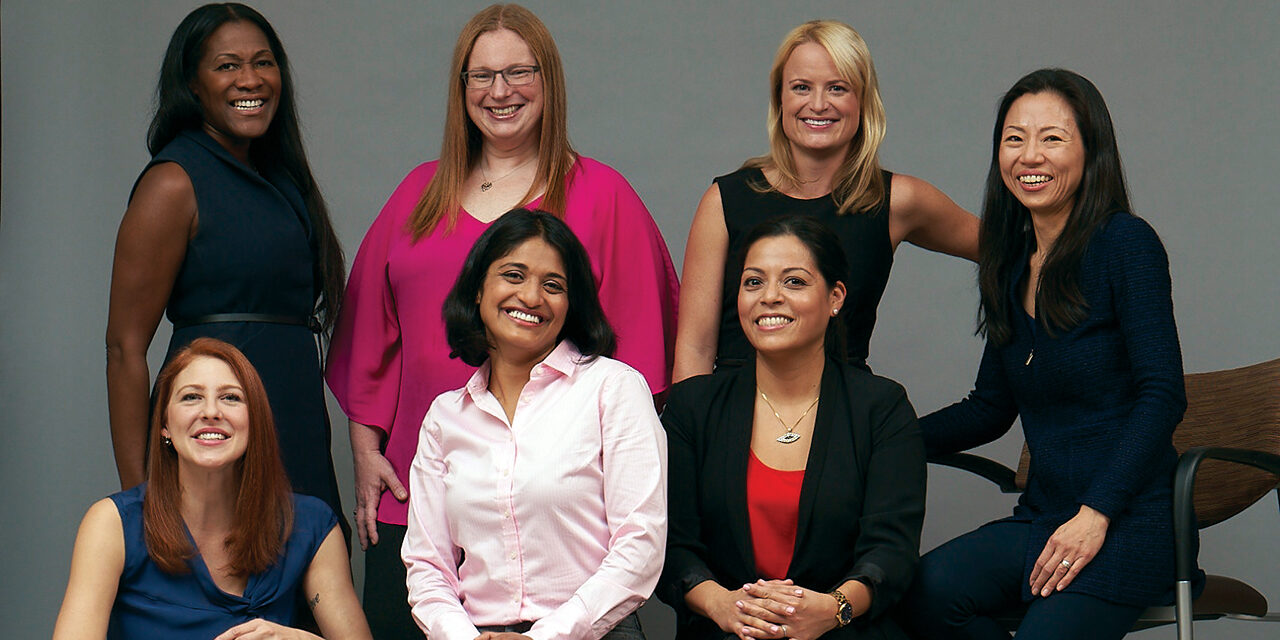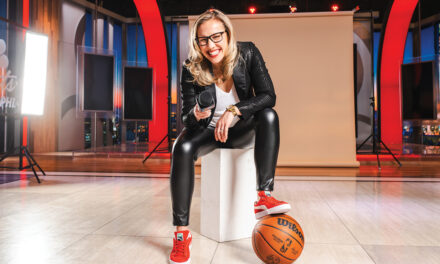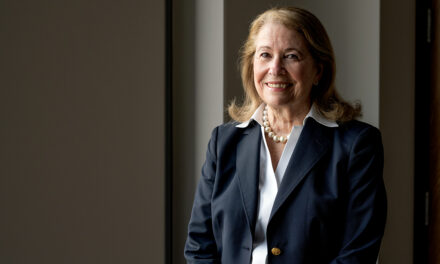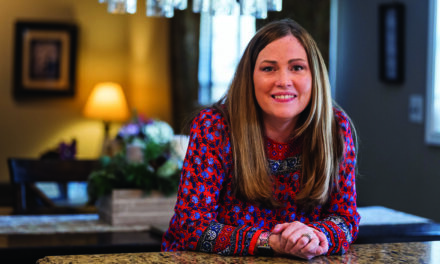Seven of Capital Health’s female surgeons take us inside their decisions to venture into a male-dominated field, what it took to get there, and explain how medical advancements are enabling them to help more patients live better and longer.
Smooth Operators
At first glance, the numbers are confounding. While women comprise more than half of students enrolled in medical school and more than 35 percent of all active physicians nationwide, they make up less than one quarter of 10 surgical specialties. When we asked seven of the female surgeons at Capital Health what was behind the disparity, they attributed the scant numbers to the long, grueling training on the road to becoming a surgeon and the arduous, inflexible hours of the profession, which can interfere with having and raising kids (and having much of a life outside work, period). While the medical field is becoming somewhat more accommodating, albeit at a glacial pace, with support at home and fire in the belly, it can be done. And these seven women are doing it with almost surgical precision.
Here, they tell us in their own words why they wanted to become surgeons, what some of the challenges were along the way, and why they think they have the most rewarding jobs on the planet.

There are challenges being a female surgeon. I don’t know many women who would say there are none. The culture of surgery is inherently competitive, and, as a woman, you feel even more pressure to perform. The system is not set up to address some of the issues women face in the workplace.
Dr. Africa Wallace, Thoracic Surgeon
My Childhood Dream
I have always aspired to be a doctor. As a child, I expressed interest in science, which my parents encouraged and nurtured. We owned a dissecting kit that contained a frog, crayfish, and grasshopper. Once the specimens were maximally dissected, my parents would order replacements. Despite my curiosity, at that time, surgery was not on my radar. The first time I expressed interest in surgery was during my time in the lab. However, I became obsessed with surgery my first year of medical school. In my gross anatomy lab, I single-handedly dissected my group’s cadaver. One of my classmates said, “You should be a surgeon.” That is when my love affair with surgery began. My fascination with thoracic surgery started as an intern. I rotated with a thoracic surgeon, who helped me understand the vast opportunities to make a difference in our field. Lung cancer is a public health issue in which we have won a few battles, but we have not won the war.
Power in Numbers
There are challenges being a female surgeon. I don’t know many women who would say there are none. The culture of surgery is inherently competitive, and, as a woman, you feel even more pressure to perform. The system is not set up to address some of the issues women face in the workplace. I don’t have any horror stories. Getting through thoracic surgery fellowship training was the hardest thing I’ve ever done in my life. The first year I was the only woman. During my second year, another woman joined, and we decided to stick together. We shared information and looked out for and supported each other. This allowed us to thrive. We were much more powerful by sticking together.
Female Surgeons
The numbers remain low because surgical training is hard and an enormous time commitment. The life of a surgical resident is not always conducive to having a family. Success in this field requires sacrifice. Many times, that means sacrificing relationships and sometimes starting a family. Are things changing? Yes. There are more women in medical school and more women surgeons. The market is demanding change. The medical profession must catch up with the rest of the world.
Robotic Surgery Misconceptions
One common misconception is that robotic-assisted procedures are done without any direction from the surgeon. It is the opposite. I am in the room and at the console. I have direct, hands-on control of the robot. It functions as an extension of my hands. The technology is cutting-edge. With a robot, you can visualize the inside of a patient’s body with a high-definition 3D camera and perform complex surgical procedures. The benefits of robotic (minimally invasive) surgery is less pain, quicker recovery, and return to normal life.
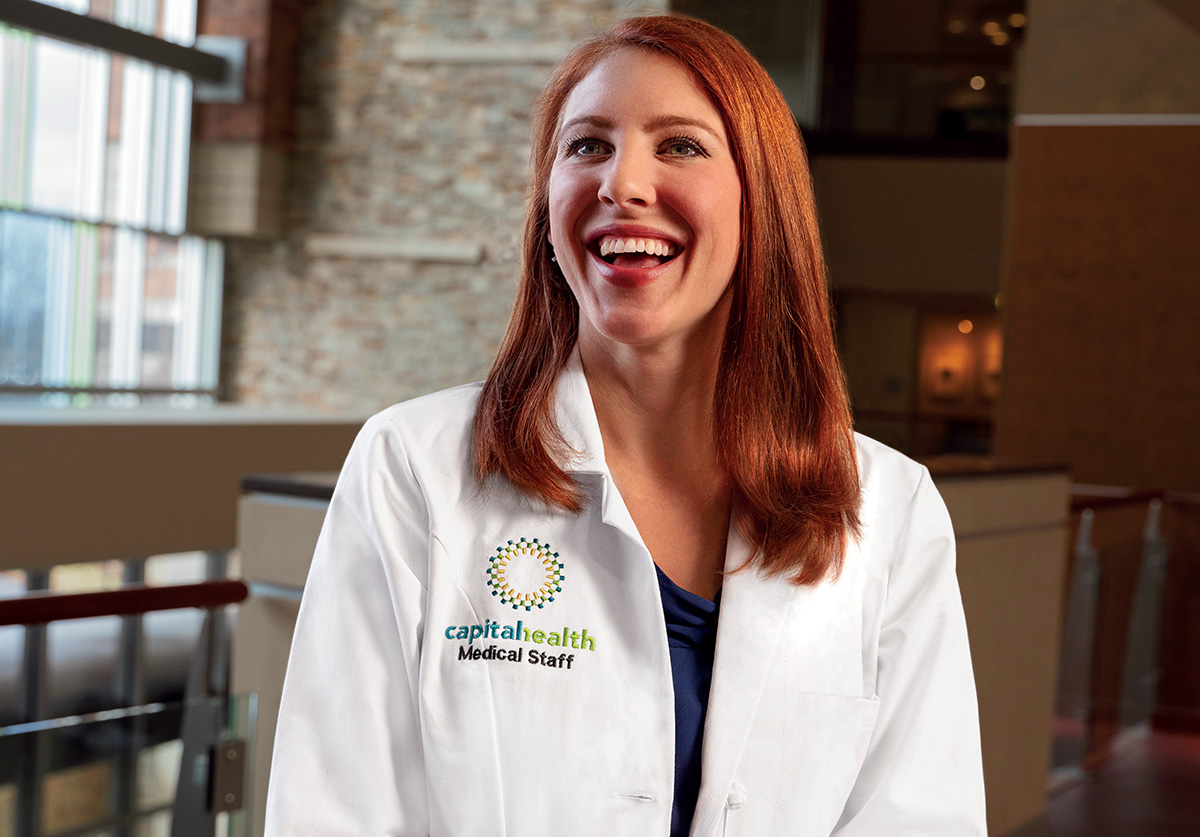
Dr. Ashlee Godshalk Ruggles, Colorectal Surgeon
Fully Invested
I resisted becoming a surgeon for most of my education. Surgeons have a reputation for being egotistical and rude. I always said I was open to any specialty in medicine except surgery. But when I rounded on my surgical rotation, I fell in love with pretty much every part of it. I loved the fact that I was doing something with my hands and that there was a technical skill that I could work on perfecting. I also loved the ownership that surgeons felt for their patients—once you’ve operated on someone, you feel invested in them in a way that is different from other physician specialties. I felt fortunate to be meeting people at their most vulnerable and being able to help support patients through such an emotional time. I realized most surgeons are just incredibly hard working and care immensely for their patients.
Being Underestimated
I wouldn’t say I’ve experienced challenges pursuing a surgical career simply because I’m a woman. The only way I’ve been treated differently is that, as a woman in surgery, people have a tendency to underestimate me—but I’ve honestly always looked at that as a benefit. If my abilities are underestimated, then people are more surprised and impressed when I deliver. Being underestimated has made me more determined to work hard and prove people wrong. Is it fair? Not necessarily. But is it motivating? Definitely.
Colorectal Connection
Two things—colorectal surgeons tend to have a pretty good sense of humor. You can’t do what I do, all day, every day, and take yourself too seriously. And the second thing is the ability I have to impact a person’s quality of life. Cancer is terrifying, and the symptoms people experience with colon or rectal cancer can be completely life-altering. I want to give someone more years, but I also want to give someone the ability to enjoy their life again and to take away the symptoms that have been so life-limiting.
Work and Life
Surgery has never been seen as a family-friendly field. But I do think it’s changed dramatically in the last decade, and I think it will continue to change. There are excellent training programs out there that have committed to supporting their residents, both male and female, in pursuing a healthier work-life balance. I benefited from being in one of those training programs. However, regardless of what support comes from your training program or hospital, you also need that support at home. My husband has made incredible sacrifices (changing jobs, moving cross country) to support my surgical education and career. He always looked at my decision to pursue surgery as a choice we made together, and without him I never would be able to do what I
do, as a surgeon, wife, and mother.
Surgical Technology
The developments in surgical technology over the next 25 years are going to be mind-blowing. The instruments are getting smaller and more advanced. The surgical instruments and tools being developed now are more sophisticated than any we’ve ever seen. We can already inject a dye and see blood vessels and the biliary tree; I think that’s just the beginning.
da Vinci/Robotic Surgery
We are able to perform incredibly intricate surgical procedures through very small incisions which means less postoperative pain and shorter hospital stays. This is a huge benefit to the patient. We also have the technology to identify certain anatomical structures in the operating room in “real time,” which can make the surgery safer for the patient.
As a woman in surgery, people have a tendency to underestimate me—but I’ve honestly always looked at that as a benefit. If my abilities are underestimated, then people are more surprised and impressed when I deliver.
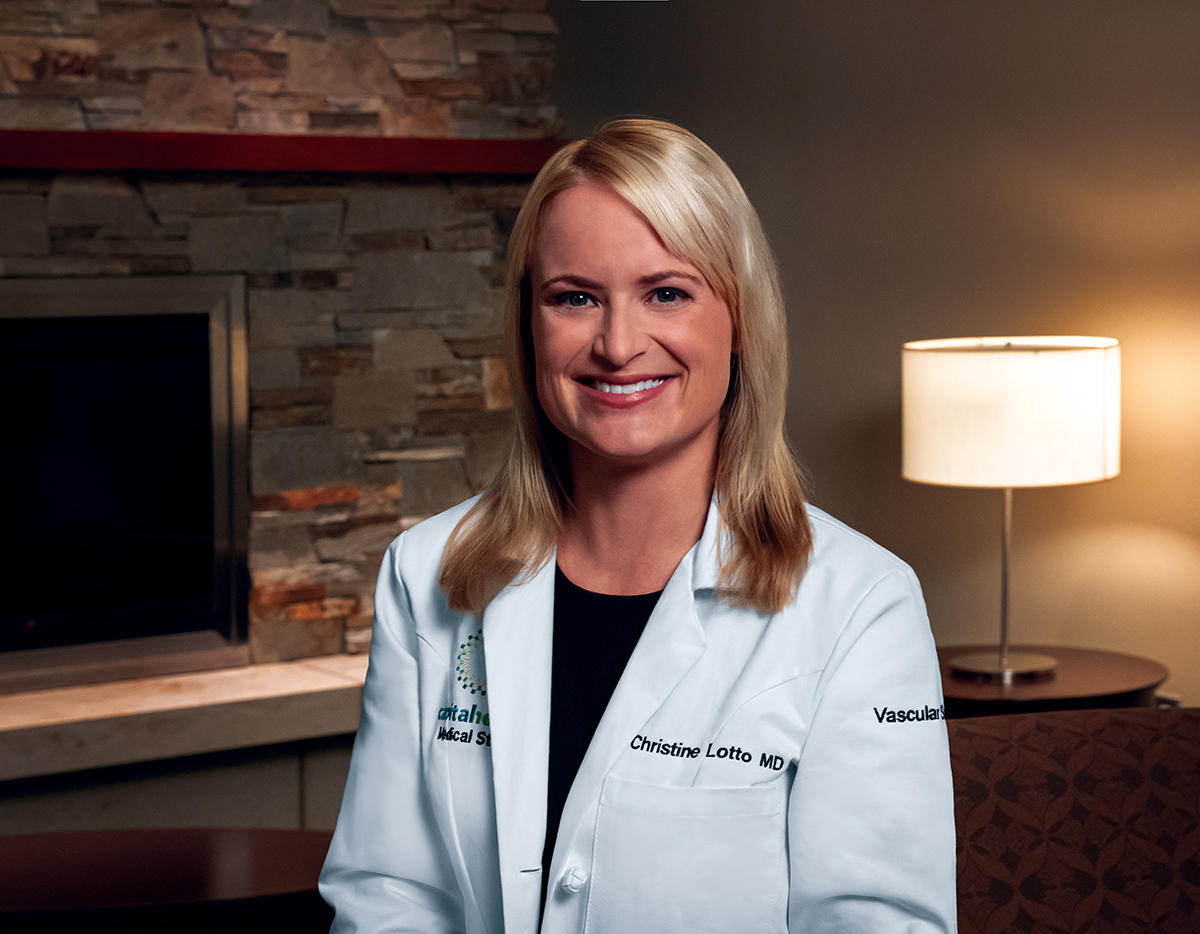
My experiences in Bolivia have helped keep me grounded and reminded me to be thankful for the resources we have here in the U.S. Foremost, they have reminded me of why I became a physician, as medicine transcends culture.
Dr. Christine Lotto, Vascular Surgeon
Operating Room Camaraderie
I did not know until late in medical school that I wanted to be a surgeon. I even applied to both surgical and medicine residencies because I loved them both. Ultimately, I learned that I thrive on the camaraderie in the operating room, the intensity of needing to be perfect under pressure, and the tangible difference that can be made immediately in patients’ lives by surgery. My decision to become a surgeon was not simply a realization of what I found most intellectually and physically challenging, but a declaration of the role I wanted to play as a physician: helping people in a tangible way.
Intense Training
Every time I operate on someone, whether it’s a major surgery or a small outpatient procedure, that person is putting their body and life quite literally in my hands and their trust in my decision-making. The training that is involved getting to that point involves immense sacrifice: We give up our youth. To become a vascular surgeon requires 4 years of college, 4 years of medical school, at least 5 years of general surgical residency, and 2 years of fellowship training. There is an immense amount of stress and pressure in each of those stages, but surgical training can be particularly cruel and all-consuming. Training does not account for time needed to start or take care of a family, which is a deal-breaker for many women physicians. However, as more women are introduced and excel in the field, I do see this changing so we can support each other in our needs.
Liver Transplants in Bolivia
There are some phenomenal surgeons in Bolivia. We have been collaborating with them to start a liver transplant program to help teach them the complexity of the operation and complicated postoperative medical and surgical care. One of my mentors, Dr. Stephen Dunn, a pediatric transplant surgeon at A.I. DuPont Hospital for Children, leads the program. He invited me to accompany him while I was still in residency. My experiences there have helped keep me grounded and reminded me to be thankful for the resources we have here in the U.S. Foremost, they have reminded me of why I became a physician, as medicine transcends culture. It’s a part of humanity we can all share in.
Future of Surgery
Endovascular surgery, or procedures done without any incisions through small catheters in the blood vessels, has been a revolution in vascular surgery. We are now treating arch and thoracoabdominal aneurysms and dissections without the need for open heart surgery. There are still a lot of developments required to simplify these very challenging procedures and to improve early and late outcomes. I am currently very impressed by all the developments in augmented reality and artificial intelligence, as well as 3D printing. In the future, 3D printers will almost instantly build devices tailored to the patient’s anatomy; we are thus rapidly moving toward personalized medicine. I think this will be the upcoming revolution, get ready!
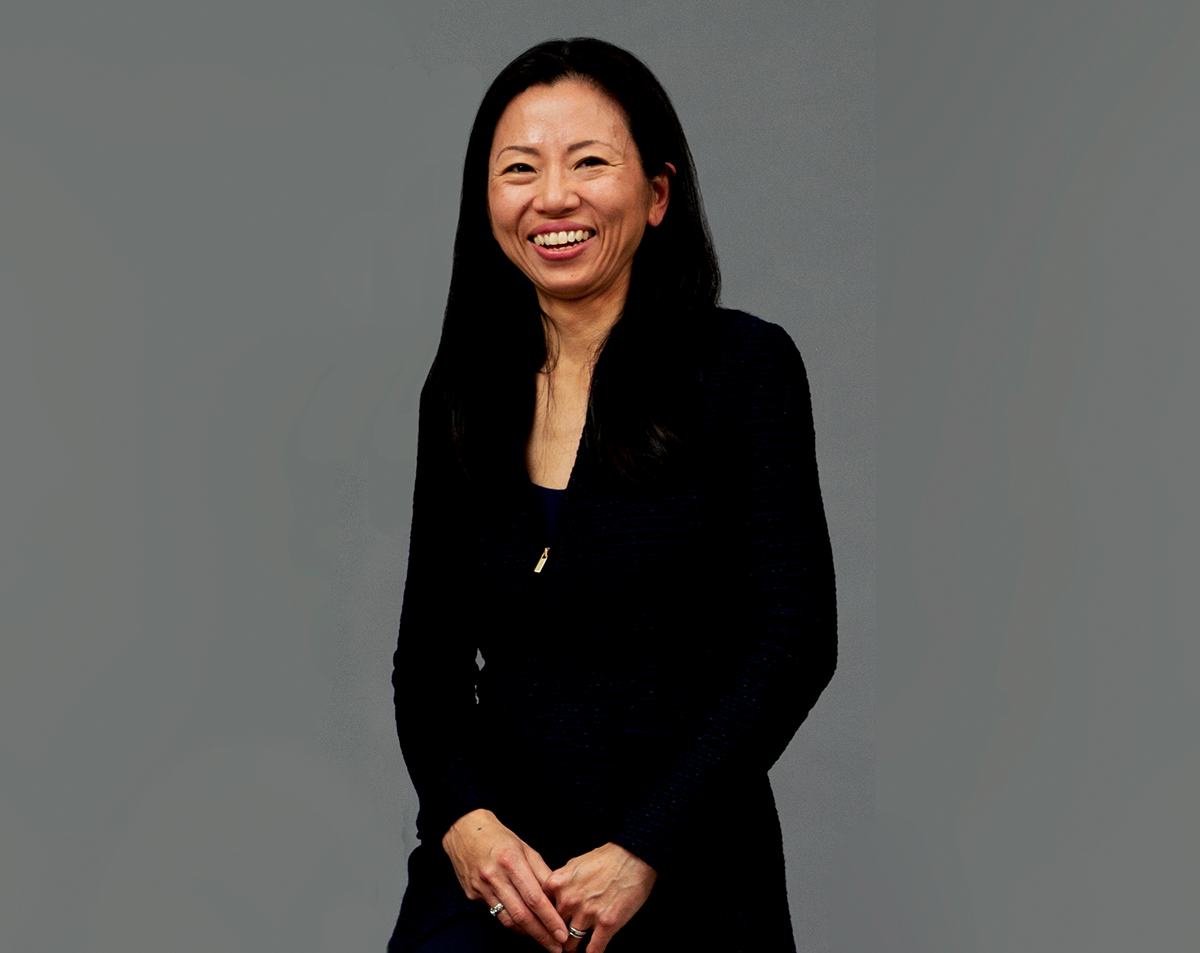
Dr. Jooyeun Chung, Bariatric Surgeon
Social Stigmas
Many people believe that bariatric surgery is the easy way out and that only really fat people should get bariatric surgery. But I do think those misconceptions are slowly changing. Bariatric surgery is becoming more and more popular and gaining acceptance by the general public, and people are slowly starting to understand that it’s more than just a weight-loss surgery, but a way to make themselves healthier overall.
Bariatric Advancements
First, the use of robot-assisted surgery, specifically the da Vinci Surgical System, is making a significant difference. We also have better instruments, including smarter staplers and better cameras, for example, that are helping lower the rate of complications among patients.
Unforgettable Patients
There are two that I think of right away. First is a female patient in her mid-twenties, who was healthy, other than her weight. She decided to undergo bariatric surgery because it was her dream to become a mother. She worked extremely hard after her surgery to become healthy, and she is now a mother to two beautiful children. There was another female patient in her late fifties who was using a walker and had multiple comorbidities. She was unemployed because of her disability and underwent bariatric surgery. Her weight-loss journey after the surgery was extra hard because she couldn’t exercise. She worked really hard and ultimately succeeded. She was able to ambulate without her walker and got a new job as a school bus driver, which she loved.
Bariatric surgery is becoming more and more popular and gaining acceptance by the general public, and people are slowly starting to understand that it’s more than just a weight-loss surgery, but a way to make themselves healthier overall.
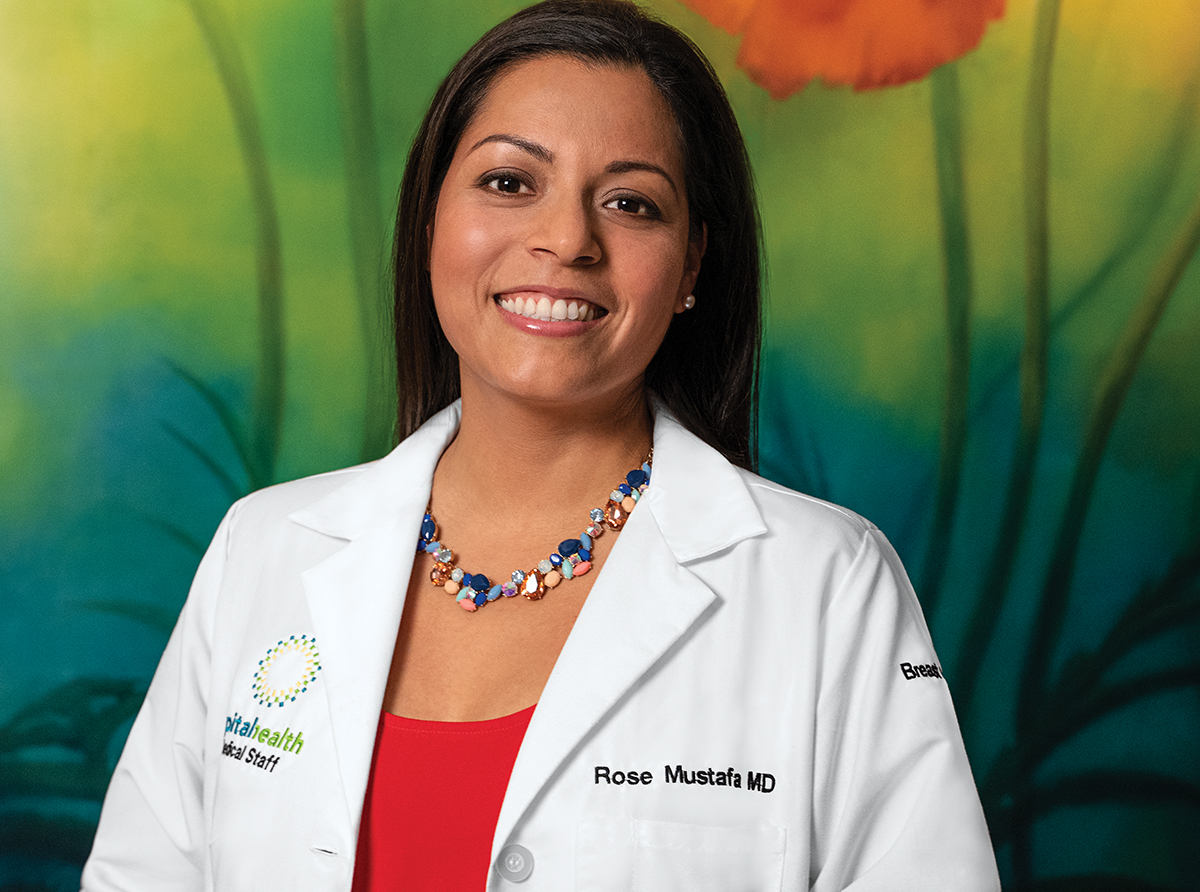
My advice to young women thinking about medicine and surgery is that strong female role models are out there—find them and pay attention.
Dr. Rose Mustafa, Breast Surgeon
Suited for Surgery
I was a third-year medical student when I assisted in placing my first chest tube in a patient. It was at that moment that I fell in love with the hands-on nature of the field and the ability to actually feel pathology.
Strong Mentors
Truthfully, I trained in New York, and even though female surgical residents may have been technically outnumbered, I did not feel underrepresented. I was very lucky to have extremely strong female mentorship throughout all of my training. There are, however, challenges in trying to balance the rigorous surgical schedule with family life in general, so it definitely was not easy, but it’s doable!
Unbreakable Bonds
I chose breast surgery because I wanted to have a great impact on women’s lives. We need to take care of each other. I cherish the strong bonds that I am able to form with my patients and their families, while taking them through their diagnosis and treatment.
Breaking Barriers
I think females make phenomenal surgeons, and nothing should stand in our way. We are astute physicians, compassionate caregivers, selfless mothers, wives, daughters, partners, and friends. The ability to incorporate all of who we are, everyday, and deliver that to our patients is a gift. I encourage, and will continue to encourage young, capable females to challenge themselves, break through barriers and make a difference. My advice to young women thinking about medicine and surgery is that strong female role models are out there—find them and pay attention.
At Home at Capital
I was drawn to Capital Health because of its vision to develop the Center for Comprehensive Breast Care. We are truly dedicated to offering state of the art care, with experts in each field, for our community. I’m excited to be part of its growth.
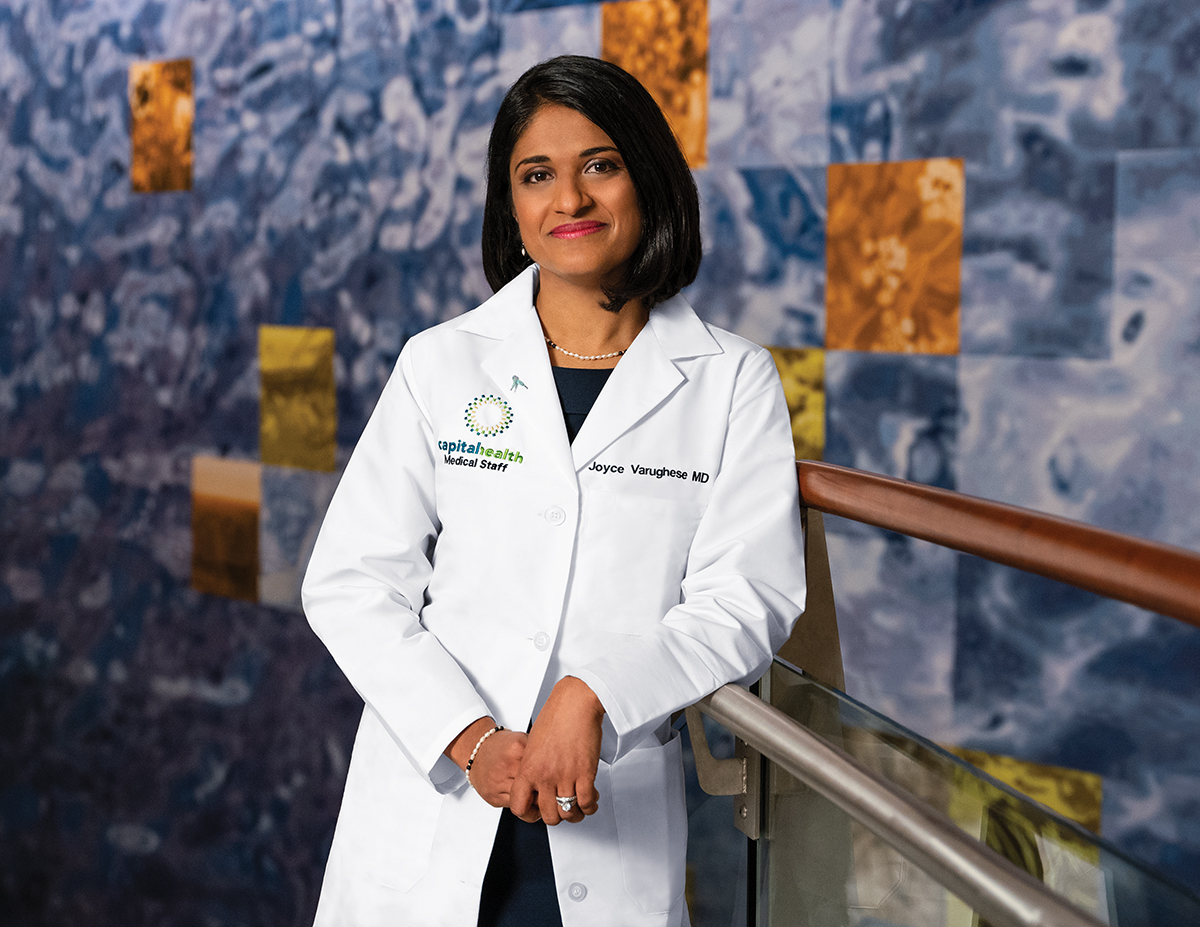
Dr. Joyce Varughese, Gynecologic Oncology Surgeon
Excellence and Empathy
I realized that I wanted to be a surgeon during my surgery rotation in my third year of medical school. I had several excellent mentors and, in particular, a female chief surgical resident, who were not only technically excellent surgeons but extremely compassionate. I decided to go into OB-GYN because I was drawn to the women’s health aspect of the field and then found my passion in gynecologic oncology during my residency in bonding with patients and their families as they coped with a life-altering diagnosis.
Breaking Stereotypes
I think one of the greatest challenges women face in medicine is still breaking the stereotype that women can be physicians and surgeons. Despite the fact that more than 50 percent of medical students are women, many people automatically assume I am a nurse, both inside the hospital and out. I think women continue to be outnumbered in surgical fields because our medical training still makes it difficult for people to become parents during training with limited time off without extending the length of the training. In the surgical fields, the training after medical school can range from 4-8 years. If a woman plans to have a family, that can extend training, so it is really a commitment from both the surgeon and the surgeon’s support network.
Gradual Shifts
With slow changes in the structure of medical training (for example: work-hour restrictions), we are seeing changes in the demographics of all fields of medicine as life outside of work becomes more of a reality. I can say that I had my first child as a fellow and was only allowed 6 weeks off that entire year without extending my training. So, I returned to 80-hour work weeks 4 weeks after the birth of my son just so that I could have another 2-week stretch with him when he was 3 months old. When I returned, I remember being in a particularly long case (5 hours in) and at a point where I was expendable in the case, I asked if I could pump as I was breastfeeding my son and was told “no.” Sadly, this type of environment continues to exist.
Diversity & Inclusion Task Force
Within the Society of Gynecologic Oncology, we created a Diversity and Inclusion Task Force, as we were seeing that the demographics of the organization were changing but the vast majority of the leadership was not. We have put forth an effort to identify the vast diversity that exists within the organization, and I worked on a diversity and inclusion grant proposal that we are submitting to the board that would fund research to minimize barriers to access to the highest quality of care and promote greater diversity and representation of women and minorities.
Prevention is Key
The biggest change I have seen is the introduction of the surgical robot, which has increased access to minimally invasive surgery to patients who previously needed large incisions. From a diagnostic perspective, we still don’t have great screening tests for ovarian or uterine cancers. But we have a much better understanding of the role that genetics plays in the development
of gynecologic cancers, so prevention is key.
From a diagnostic perspective, we still don’t have great screening tests for ovarian or uterine cancers. But we have a much better understanding of the role that genetics plays in the development of gynecologic cancers, so prevention is key.
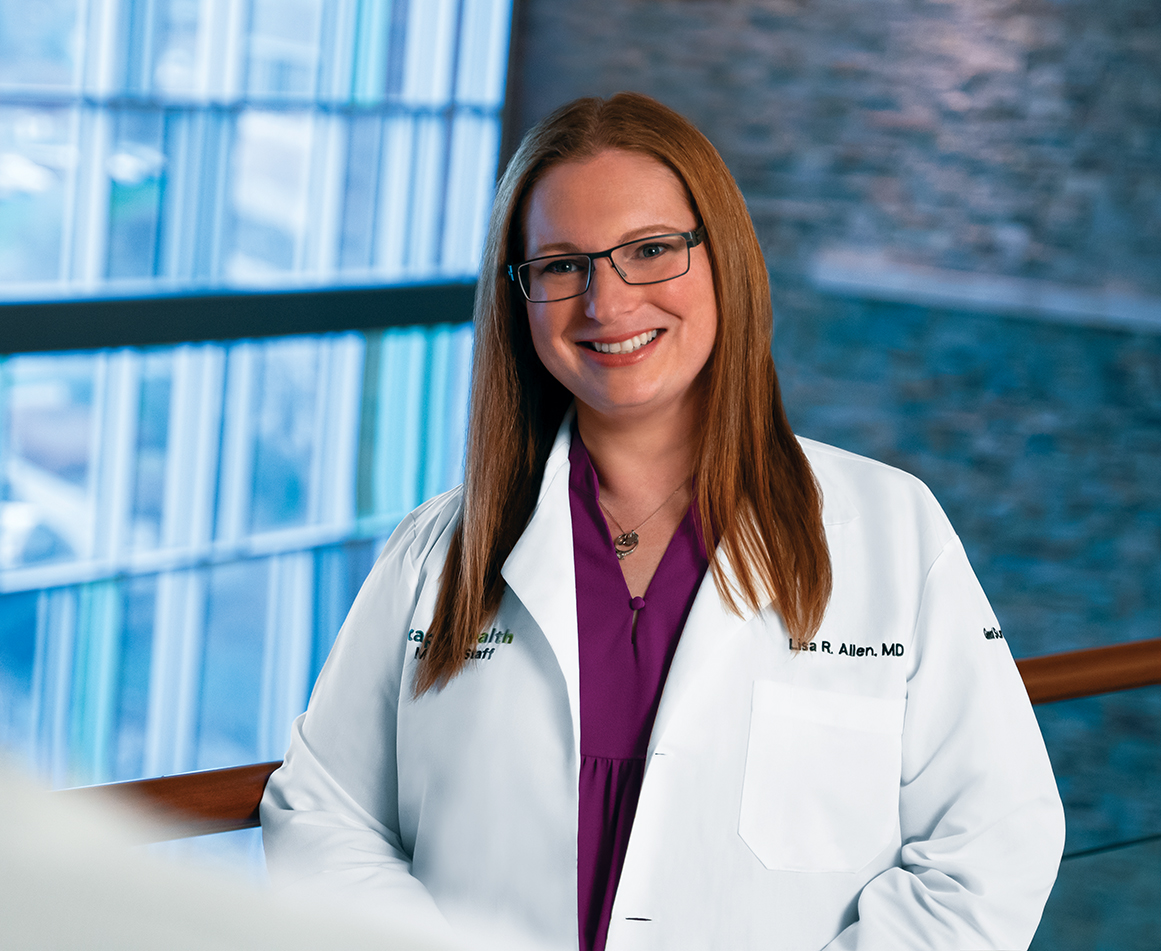
To this day, as I hear about female surgeons and residents being treated unfairly by male colleagues, I know that there is significant room for improvement.
Dr. Lisa Allen, Director, Center for Comprehensive Breast Care
Big Dreams
My parents always told me that since I was very young I said I wanted to be a heart surgeon. At the time, my mom was working at a hospital that specialized in heart disease, so that was likely the source of such a specific occupation. As I grew older, I knew I wanted to be a physician, but didn’t know specifically what type. The first day I stepped into the operating room as a third-year medical student, I knew that I had found my home. I was immediately amazed by what the surgeon was capable of doing in regards to fixing the problem and the surgical techniques utilized to do so.
Women Surgeons
I was lucky to have met surgeons in med school who fostered my interest in becoming a surgeon. I was also lucky that the founding surgeon of the Association of Women Surgeons, Dr. Patricia Numann, was a professor at my medical school. I had an amazing opportunity to operate and see patients with her. In residency training, 50 percent of my class was female. We all worked hard and supported each other through our residency. We also had surgical mentors who supported us throughout training. I was fortunate to train in a program, run entirely by male surgeons, that was extremely supportive of the female trainees. To this day, as I hear about female surgeons and residents being treated unfairly by male colleagues, I know there is significant room for improvement. The Association of Women Surgeons continues to push for change.
While women surgeons only make up about 19.2 percent of surgeons in the U.S., this number has been steadily increasing. With a growing number of women program directors, female students now have role models who encourage their pursuit of a surgical career. In most subspecialties, the number of women is in the minority, but a large majority of breast surgeons are female. There is an amazing camaraderie amongst breast surgeons nationwide, and we often share resources and ask each other questions to help each other grow in our practice of medicine.
Medical Advancements
Since I started at the Capital Health Center for Comprehensive Breast Care in 2012, there have been many changes in diagnostic and treatment algorithms for breast cancer patients. We have made sure to have the most up-to-date equipment for screening for breast cancer including 3D mammogram and 3D breast ultrasound. We have conformed to the breast-density reporting laws that were passed and discuss these results with our patients. We have also kept up to date in our treatment guidelines with the many studies that have encouraged treating with chemotherapy first and decreasing the amount of lymph node surgery in appropriate patients. We also utilize genomic testing to treat patients appropriately who are estrogen positive.
I am proud of the Breast Center we have created at Capital Health and the adjuvant services we offer patients. We have a full complement of supportive services, including financial navigation, nutrition, genetics, support groups, counseling, transportation, and alternative therapies (yoga, acupuncture, pet therapy). We have survivorship days where we celebrate with patients as well as educational lectures to keep them informed of new screening and treatment guidelines. We work hard to identify the needs of our patients and offer all of the assistance we can in making breast cancer treatment a smooth process. The administration at Capital Health is supportive in ensuring we have the resources necessary to make all this possible.

